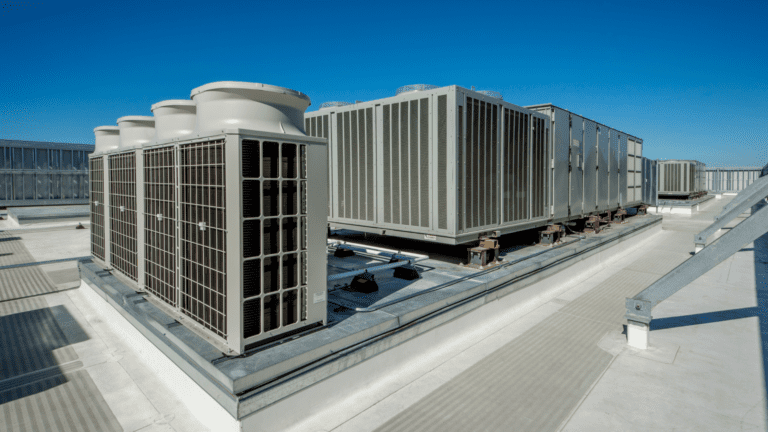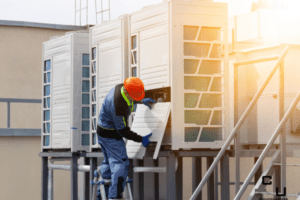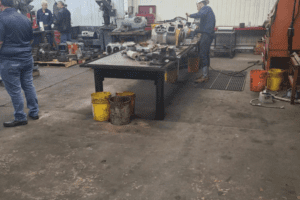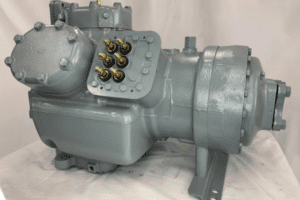Today’s compressors are durable and reliable – they often have a life of eight years or more. But sooner or later, they have to be replaced. It’s wise to have plans set up for the eventual replacement before poor performance is noticeable.
When it’s time to replace a compressor unit, it is usually best to select the same model from the same manufacturer. However, this is sometimes easier said than done. Manufacturers and the affiliated wholesalers that work with them can have a significant backlog of orders.
Add the global supply chain issues of recent years (unlikely to end in 2022) and replacing a compressor can be a real hassle. There’s always a balance to be struck: Getting as many years of reliable service out of the unit as possible without sparking a situation where you could face an unexpected failure.
Modernizing your HVAC system adds a few other questions to the mix.
If You Are Updating Your HVAC, You Can Usually Stick with Your Current Compressor
If you’re updating your HVAC to incorporate new technologies, like a smart thermostat or building management system, you can usually stick with your existing compressors. Consider changing your compressor only if your cooling needs radically change.
If your building remains at the same size but will have higher occupancy, your existing HVAC compressor can usually stand up to the challenge. On the other hand, if the size of the area to be cooled is growing, you’ll need to design a way to meet that expanded need.
Usually, this doesn’t come from replacing the compressor, but from creating separate temperature zones in the new area. That means sizing a new compressor for that zone only rather than replacing your existing one. It’s vital to choose a compressor that’s the right size:
- If a compressor is too large, your cost of ownership will be high
- If it is too small, it will not deliver consistent cooling performance
Replace Your Existing Compressor Before It Ages Out
The larger your commercial HVAC is, the bigger the compressor’s impact on performance as a whole. Any of these signs – or a combination – may tell you it’s time to replace your compressor:
1. Compressor Needs Frequent or Costly Repairs
Standard compressor maintenance is broken into weekly, monthly, quarterly, and annual tasks. As long as you stay on schedule, you should keep cost of ownership down. Repairs and replacements outside these times can be cause for concern.
One reason it’s so important to document your maintenance routine is that you will be able to see patterns emerging. Most “compressor problems” originate elsewhere in the system, and your repair history gives you important clues.
The compressor is the “heart” of the system because it affects every other player in the cooling cycle. Although replacing the compressor is an investment, it’s sometimes the best way to prolong the well-being of the rest of your system. That saves money in the long run.
2. Compressor Draws Too Much Electricity
Of the entire HVAC system, the compressor is the biggest user of electricity. Efficiency improvements in the compressor can result in thousands of dollars in savings per year. Likewise, the unit loses efficiency through wear and tear and other issues.
When the HVAC compressor is first powered on, the electrical usage is substantial – but it should only maintain this peak usage for a very short period of time. A compressor that consistently draws a high level of electricity can be at risk of overheating.
3. Compressor Has Repeated Leaks or Electrical Issues
While many leaks are easy to fix, they should not happen more than once. Electrical issues are far more serious. Ongoing electrical problems suggest something is wrong with your structural wiring. Improper voltage can destroy your compressor. A new one will still be vulnerable until the matter is resolved.
4. HVAC System Fails to Hit Target Temperatures
When the HVAC is not performing as it should, a few simple steps are in order before checking the compressor. First is checking the refrigerant level. This is the most common problem for any HVAC system.
Second, look at the system’s thermostat. Smart thermostats use a network of sensors throughout the structure. These sensors can have intermittent problems if they become dirty or obscured. Over time, they gradually degrade and need to be replaced.
If none of these issues are present, and the HVAC air filters are clean, then your compressor might be failing to reach the appropriate pressure. This can be indicated by lukewarm air blowing through your system, but beware, as this is also a sign of refrigerant loss.
Don’t get stuck waiting in line for the compressor you need. A remanufactured commercial compressor meets all the same performance and environmental standards at a fraction of the cost and time.












